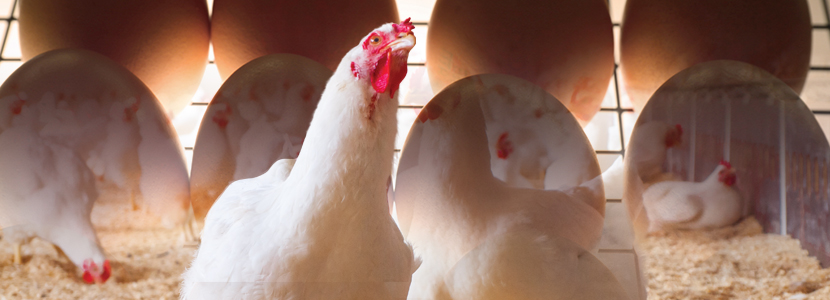Content available at: Español (Spanish)
Not all hatching eggs entering a hatchery are of the same quality or have the same hatching potential. Therefore, we must classify them according to their:
- Size
- Cleanliness
- Shell quality
The hatching eggs must be:
- Fertilized eggs of a size that guarantees the hatching of viable chicks.
- Good shell quality, clean and uniform within the same breeder flock.
Not all hatching eggs are the same: we can find them with different hatching potential and even different microbiological quality of the day-old chick. Among them, we can highlight eggs with:
It has always been considered that the greater the intensity of the shell color, the greater its quality. This may be due to a possible relationship between the pigmentation and calcification processes of the eggshell.
With age, the weight of the shell is more or less maintained but as it increases in size, the shell thins. Furthermore, shell coloration is significantly affected, fading in both color and quality as flocks get older.
In field studies, coloration has been found to correlate slightly significantly with the egg’s specific gravity, which is one of the parameters of shell thickness.
- Hatch outcomes
Hatch results are not influenced by the intensity of the shell color, although according to some studies, that is not always the case. This may be due to the pigmentation of the egg occurring just before oviposition, caused by an early laying as a result of environmental stress, thus affecting the shell quality.
Dark eggs hatched the best, with a rate of 2.5% higher than medium eggs and more than 7% over light colored eggs. It is striking how the hatch of fertile (HOF) of this group is at 91.5%, while the medium and dark eggs are above 95%. This is due to the fact that the lighter coloured group had equal levels of fertility, but the poorer shell quality led to excessive moisture loss, causing early to late mortality.
Keep up to date with our newsletters
Receive the magazine for free in digital version
REGISTRATION
ACCESS
YOUR ACCOUNT
LOGIN
Lost your password?

